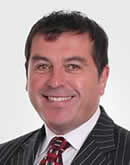The Charity Action for Children are calling for review of the law, in particular the 1933 Children and Young Persons Act, which makes it a criminal offence to fail to provide a child with adequate food, clothing, medical aid or lodging. They believe that more focus needs to be placed upon rescuing children from neglect by educating parents than punishing them for not being good enough carers.
The Act was brought into force as part of the one of the first pieces of children and welfare legislation on our statute book. There was in existence more abject poverty, brought about by not only the industrial revolution, but also a World War. There were large extended families where grandma and others would provide help and guidance where needed, such that the state was not obliged to intervene. A lot of children died in infancy due to poor diet, ailments that today would be cured by the NHS, or perhaps a violent or alcoholic parent. Life was tough. The niceties of failure to care or the subtleties of intervention by the state were not concepts of subtle social care that are commonplace today.
As a nation we were surviving with less sophisticated surroundings and luxuries than we expect today. The welfare state had not been invented, nor was there income support or indeed any benefit. The state did not intervene if humans had no money. You worked or starved, unless you were lucky enough to be looked after by the extended family, the Church, or a benevolent charity, of which there were far fewer than today.
As a foster parent I see the results of neglect all the time. It is shocking how badly and irreparably damaged children can be by a dysfunctional relationship with their parents. Whether or not early intervention with an aberrant parent will bear fruit is doubtful if they are severe alcoholics, or addicted to drugs. On the other hand punitive measures are two dimensional.
I have always been of the view that not enough parental training is available or implemented for the majority of the population. Many years ago, when grandma lived round the corner, she would pass on child care skills, wisdom and knowledge, acquired over generations. Sadly, bad habits could also be taught. Thus professional training is more likely to be consistent, and reliable. Many mothers lack the knowledge and experience to properly care for children, either because they live in isolated circumstances or have been taught inappropriately by their family.
It is only the last few years, since abuse became more discussed and out in the open that governments have had the political courage to intervene into the family unit. At one time, before there was so much disclosure of abuse, child neglect used to be secretive, and not discussed. The "nanny state" has thus much to commend itself even if, perhaps, under Gordon Brown, it went a little too far.
I spend much of my professional life looking for ways in which Social Services let dysfunctional families down where the outcome has been an abused psychologically damaged child. Early intervention can rarely be criticised, if, perhaps, harsh and disruptive.
To read the BBC article click here

No comments:
Post a Comment